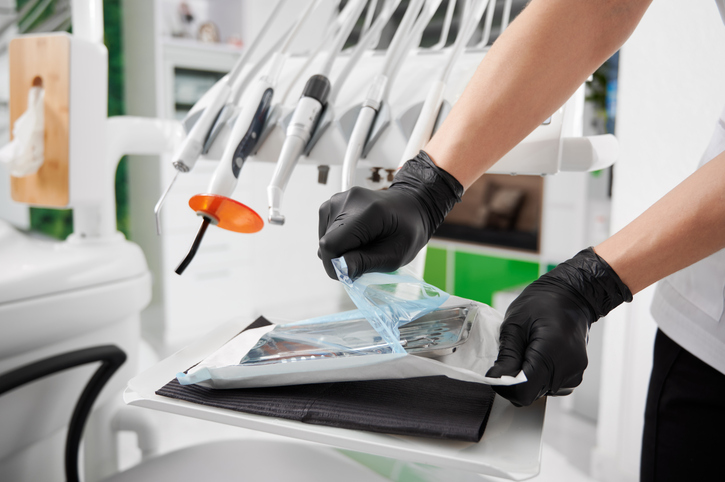With the effects of the COVID-19 pandemic, the transmission of germs and infectious diseases is something on everyone’s mind. Wearing masks, using hand sanitizer frequently and constantly sterilizing surfaces have all become a part of our daily routines. However, if you’re considering a career in the dental industry, what you’ll soon learn is that these practices have been widely used long before the word “COVID” was mentioned.
Infection control is something that dental hygienists practice each and every day, keeping their clients safe by preventing diseases and bacteria from spreading between clients. If you’re considering a career as a dental hygienist, learn more about the infection control practices you’ll use on the job and why they’re important, below.
Why Infection Control Is So Important After Dental Hygienist School
If you’re enrolled in a dental hygiene diploma program, having a strong understanding of infection control practices will be important for your success. During your dental hygienist career, your ability to abide by infection prevention controls and recommendations can prevent infection from spreading. In the delivery of safe client care at dental offices, a crucial component is ensuring that all possible cross-contamination is avoided.
Diseases and bacteria can be highly transmissible between clients, especially where oral health is concerned. Water, saliva, microorganisms and blood must all be removed from equipment and surfaces in order to keep dental practices operating safely, making infection control critical in each and every dental practice.

Key Components of Infection Control in Dental Offices
Within dental offices, there are a few standard infection control practices to keep in mind at all times.
-
- Hand Hygiene: Before each client, be sure to wash hands with antimicrobial soap and water, and perform a surgical scrub before surgical procedures. Sterile gloves should also be worn when working with clients.
- Personal Protective Equipment (PPE): PPE, including gloves, clothing that covers exposed skin and mouth, nose and eye protection should be worn during any procedure in which there is a risk of fluid spraying.
- Respiratory Hygiene: Symptomatic clients with any indication of respiratory infection should be separated from other clients. Additionally, surfaces prone to respiratory secretions should be doubly disinfected.
- Sterilization and Disinfection of Equipment and Devices: Between each client, all reusable devices should be sterilized according to the manufacturer’s instructions.
- Sharps Safety: Use caution and proper techniques when handling sharp items.
- Water Quality: In dental settings, the water should meet regulatory standards for drinking, and water quality should be consistently monitored.
After dental hygienist school, you can adhere to the standards above in order to keep your clients safe while on the job.

How to Stay Vigilant of Infection Control Practices as a Dental Hygienist
It can be difficult to remain vigilant of infection control practices as a dental hygienist, especially as there are plenty of different protocols to remember. However, it’s important to keep each and every one of them in mind for the safety of clients and the health of those employed at the dental office.
As a dental hygienist, you can establish a routine throughout your day, setting aside time to meet all infection control standards. Once you develop a schedule of tasks to complete before the day begins, before and after clients arrive, and once every appointment is finished, keeping up with infection control standards will become second nature. Follow these tips to ensure a successful dental hygiene career!
Are you ready to enroll in dental hygiene courses?
Launch your career in the oral health industry with a program at the Canadian Academy of Dental Hygiene.


